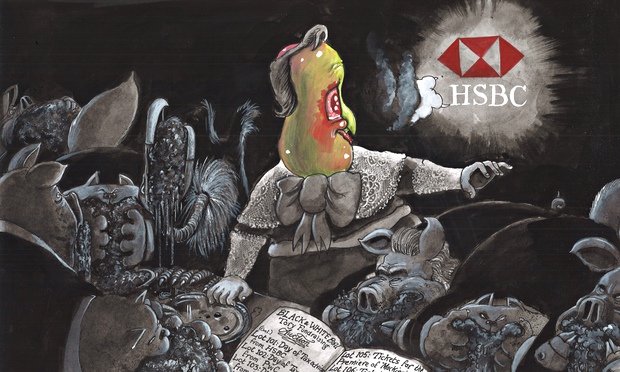
Library campaigners descend on parliament to defend public funding



The Alibi Library enjoyed celebrating National Libraries day with everyone this weekend!! We all have hangovers and alibis after our own bookathon involving the Sherlock Holmes series in which one was expected to drink a snifter every time a body part was mentioned. Unfortunately the word “hand” proved rather more frequent than we´d imagined:

Other Library Day events were better organised and well supported. Find out about more events and follow up here and here:
Next up Valentine´s Day for a romantic rendezvous in a Library near you!


As Alison Flood reports in her recent article in The Guardian, “Shaking off their traditional reputation as lovers of peace and quiet, librarians are preparing to take a loud battle for Britain’s libraries to the door of the culture secretary.”
She reports that the Chartered Institute of Library and Information Professionals (Cilip) is challenging the government over its “failure to carry out their legal duty to the public” and keep branches open using the 1964 Public Libraries and Museums Act (stating that the public has a statutory right to a quality public library service.)
“We’ve had enough. We’ve marked our line in the sand here. The government is behaving as if it doesn’t have a duty of care and they do, under the law. We think it’s time to be clear about what that means,” said Nick Poole, the chief executive of Cilip. More than 100 library branches were shut last year, and further branches up and down the UK face closure.
http://www.theguardian.com/books/2015/dec/17/library-closures-campaigns-fights-cuts-uk

Natalya Sharina, director of the Library of Ukrainian Literature in Moscow, was arrested in October after police raided her workplace and home looking for ‘extremist literature’.
After they allegedly found work by a banned writer, Natalya was forced to spend two nights in a prison cell and now faces up to five years in jail – simply for exercising her right to freedom of expression.

from Amnesty International
sign petition here:
Perhaps the most distressing of all “alibis” can be found in Martin Amis´Time´s Arrow.  A Nazi Holocaust doctor now on his deathbed revisits his life in flashback. In a sickening and disorienting twist these flashbacks come in reverse chronology and so we see the camp doctor healing and saving his patients instead of tortuously experimenting on their dying bodies. And so the despicable doctor makes good, ironically fulfilling our ideal of a medic, one who cures, and the patients walk free. A disturbing enough plot device but coupled with the precision with which Amis can describe the events it makes for the most harrowing of reads:
A Nazi Holocaust doctor now on his deathbed revisits his life in flashback. In a sickening and disorienting twist these flashbacks come in reverse chronology and so we see the camp doctor healing and saving his patients instead of tortuously experimenting on their dying bodies. And so the despicable doctor makes good, ironically fulfilling our ideal of a medic, one who cures, and the patients walk free. A disturbing enough plot device but coupled with the precision with which Amis can describe the events it makes for the most harrowing of reads:
“Uncle Pepi´” has surpassed himself with the new laboratory: the marble table, the nickel taps, the blood stained porcelain sinks… In this new lab of his he can knock together a human being out of the unlikeliest odds and ends.
On his table he had a box full of eyes. It was not uncommon to see him slipping out of darkroom carrying a head partly wrapped in old newspaper…. The next thing you knew there´d be, oh, I don´t know, a fifteen-year-old Pole sliding off the table and rubbing his eyes and sauntering back to work, accompanied by an orderly and his understanding smile…
As to the so-called experimental operations of “Uncle Pepi´”: he had a success rate that approached – and quite possibly attained – 100 per cent. A shockingly inflamed eyeball at once rectified by a single injection. Innumerable ovaries and testes seamlessly grafted into place. Women went out of that lab looking 20 years younger…
“Uncle Pepi´” never left any scars… ”
Love this story from the ever wonderful Guardian newspaper:
A former pupil has returned a school book 65 years after first borrowing it – and has paid a £1,500 fine as recompense.
Sir Jay Tidmarsh, 82, came across the long-forgotten copy of Ashenden by W Somerset Maughan as he cleared out his shelves.
Tidmarsh decided to return the book to Taunton School in Somerset along with a £1,500 donation to the school library.
He said: “I don’t know why but I just happened to open the front cover and was shocked to see “Property of Taunton School” printed inside. I thought I should do the decent thing and return the book – paying my dues at the same time.”
Ashenden is a collection of short stories about a British spy during the first world war.
A veritable baffle of bankers, I believe that is the collective noun (Others have suggested worse!), have been through our doors in recent months.

Their bulging pockets, family ties and slippery nature makes applying an alibi tricky. Like calmly applying a saucepan lid to a volcano or a plaster to a cannon wound.


The financial rewards could be huge but there is little personal satisfaction in helping this well-dressed detritus.
 (Ben Jennings, The Guardian)
(Ben Jennings, The Guardian)
And when it finally gets to the courts, we all know that in the summing up, it will all add up to nothing and the bankers will walk free with or without the help of the Alibi Library. They are not accountants for nothing. But we know better than to believe that tricky math.
So while the bankers hide their whereabouts …

… where was good government? Do they need an alibi too? Whereabouts were they?
After all, they received the leaks two years before everyone else.
 (Martin Rowson, The Guardian)
(Martin Rowson, The Guardian)

This article is from Amnesty International´s blog By Mike F:

Today’s World Book Day celebrates and encourages reading. What will you pick up today? Some Shakespeare, a classic fairy tale such as Puss in Boots perhaps, or something weightier like Dostoyevsky’s Crime & Punishment? For Guantánamo detainees, however, none of these books are options; they are banned from reading them
The reading material requested by detainees is vetted and some books fail to make it through. To say the decisions are curious would be an understatement. Russell Brand’s Booky Wook 2 is forbidden. Franz Kafka’s The Trial is permitted. The protagonist in The Trial, Josef K, is arrested and prosecuted without ever learning of the charges brought against him. If any book were deemed too close to the bone, surely it would be The Trial.
The incendiary, inappropriate material in banned stories such as Cinderella and Jack and The Beanstalk is obvious. Other books appear to have been vetoed for their titles alone, regardless of the content – Crime and Punishment, John Grisham’s The Innocent Man, and Scott Turow’s Presumed Innocent, for example. The ban on The Innocent Man was lifted after Grisham wrote an article in the New York Times about Nabil Hadjarab, the man who had requested the book.
Tom Bingham’s The Rule of Law is prohibited. In this book, published towards the end of his life, the former Lord Chief Justice discusses law as the basis of a just society and the potential erosion of a fair legal system under the threat of terrorism.
Shaker Aamer’s lawyer, Clive Stafford Smith, has suggested that prisoners have been denied access to materials that might help them learn English. This stretches as far as banning the New Dinkum Aussie Dictionary. Just as communication seems to be frowned on by the US military, so does creativity. A poetry collection, Poems from Guantánamo: The Detainees Speak, was published in 2007 despite suspicion and opposition from the Guantánamo staff.
A restricted library is one of the lesser human rights violations experienced by Guantánamo’s detainees. Nonetheless, the arbitrary, sub rosa process of book censorship follows a pattern of decision-making that began when the GTMO military prison was set up in 2002.
Posted 06 Mar 2014, 2:35pm
By Mike F
To visit Amnesty International:
One of Aleister Crowley´s less curious friends came by that day. If I am not mistaken it was a young Louis Umfreville Wilkinson, but maybe he came after Reading Gaol. Memory is such a sly thing and too often it plays tricks on the old.
Well this young gentleman approached us for help. A dismal Saturday morning it was too. His umbrella safely stowed, he enquired after a lesser strain of Alibi often called Habili due to its popularity in Middle Eastern lands. It was to be for a certain famed individual.
We were not unduly taken aback, it was quite normal for a friend to act as a representative or intermediary and making such an approach on behalf of a public figure. And Oscar was already enormously well known.
It seemed that Mr Wilde was possessed of the need to make a trip to Sunbury to meet a scholar from Banbury, to whose poetry he had grown quite affectionate. The meeting with the scholar, it transpired, was to be kept, be any means necessary, from the public eye.
The reason for the secrecy was not revealed.
I can´t imagine…
Nothing could have been easier. It took no time to invent an effective Habili tailor made to Oscar´s circumstances.
We gave him details of a very elderly, very frail relative. To this sketch, a few minutiae were added whose particulars could be checked out to the satisfaction of any keen journalist, private investigator or any such prying eyes. And we gave this infirm relative the name Bunbury.
And so the young gentleman left satisfied that all could handled in a tidy fashion, but such was his haste that he forgot his umbrella. A sad state of affairs given the climate of this city.
Oscar took the whole thing very seriously, using the alibi on numerous occasions and even once spoiling us with an impromtu visit in persona.
It was such meticulousness on Oscar´s part that led us to give the whole affair the codename Earnest, . Although the alibi was subsequently used by a notable series of Uranists, it should be appreciated that Codename Earnest was infact employed by individuals of all tastes including, notoriously, a leading politician of the day.
Unfortunately, this alibi -echo gave rise to Oscar´s long standing dispute with ourselves and his subsequent reticence in consulting our archives during his appallingly misconceived libel case and mishandled trial.
A reluctance which without doubt led to his encarcelation. Criminal!
Still got the umbrella somewhere hereabouts.
Madrid, the town I have chosen to call home for the last ten years, has a multitude of libraries that might well have fallen straight from the pages of a fantasy or science fiction novel. Despite drastic cuts carried out in the name of austerity, most of the libraries included here are open to the general public and I encourage the Madrileños to support their local with a visit.
For Sci-Fi we should start with my local, Pedro Salinas, in Puerta de Toledo, constructed in 1992 by Juan Navarro Baldeweg, zapped out of Terry Eagleton´s discworld.


 La biblioteca Ana Maria Matute in Carabanchel, by RSP architects, like some crazy glass headed dinosaur.
La biblioteca Ana Maria Matute in Carabanchel, by RSP architects, like some crazy glass headed dinosaur.



 The Rafael Alberti Library by Andrés Perea Ortega with its magnificent Mies van der Rohe facade:
The Rafael Alberti Library by Andrés Perea Ortega with its magnificent Mies van der Rohe facade:


 The Gloria Fuertes public library whose cyclopian facade stares out over a bleak Barajas.
The Gloria Fuertes public library whose cyclopian facade stares out over a bleak Barajas.
 The Luis Martin Santos Library in Vallecas created by architects Mario San Juan Calle, Ángel Sevillano Martín e Iván Carpintero López enjoys some fantastic reading spaces:
The Luis Martin Santos Library in Vallecas created by architects Mario San Juan Calle, Ángel Sevillano Martín e Iván Carpintero López enjoys some fantastic reading spaces:



 The Jose Hierro library in Usera (Ábalos y Herreros, 2002) functionally designed to act as a “catalyst” in the local community.
The Jose Hierro library in Usera (Ábalos y Herreros, 2002) functionally designed to act as a “catalyst” in the local community.
 The Mara Moliner Library by Miguel Cabanes Ginés, Elena Robles Alonso, Pedro Gambín Hurtado (2013)
The Mara Moliner Library by Miguel Cabanes Ginés, Elena Robles Alonso, Pedro Gambín Hurtado (2013)
 The ESIC Library of Marketing Finance and Economy
The ESIC Library of Marketing Finance and Economy
 Rather more well known is the library of the Reina Sofia modern art gallery by Jean Nouvel.
Rather more well known is the library of the Reina Sofia modern art gallery by Jean Nouvel.



 Leon Tolstoi in Las Rozas seems to have simply appeared out of nowhere since no reference to its construction can be found. An invisible architect?
Leon Tolstoi in Las Rozas seems to have simply appeared out of nowhere since no reference to its construction can be found. An invisible architect?
 Or how about the polytechnic University library, below?
Or how about the polytechnic University library, below?
 And near to the Retiro these two gems:
And near to the Retiro these two gems:
Casa de Fieras:
 Biblioteca Retiro in the Calle Doctor Esquerdo:
Biblioteca Retiro in the Calle Doctor Esquerdo:
 These and other gems in the Community of Madrid have suffered cuts to services, budgets, opening times affecting users, collections, reading groups etc
These and other gems in the Community of Madrid have suffered cuts to services, budgets, opening times affecting users, collections, reading groups etc
Support your local library to avoid situations like this one (Bilblioteca Publica Joaquin Vilumbrales, Alcorcon) where local protest was necessary to restore their access to something like approaching a good library service.